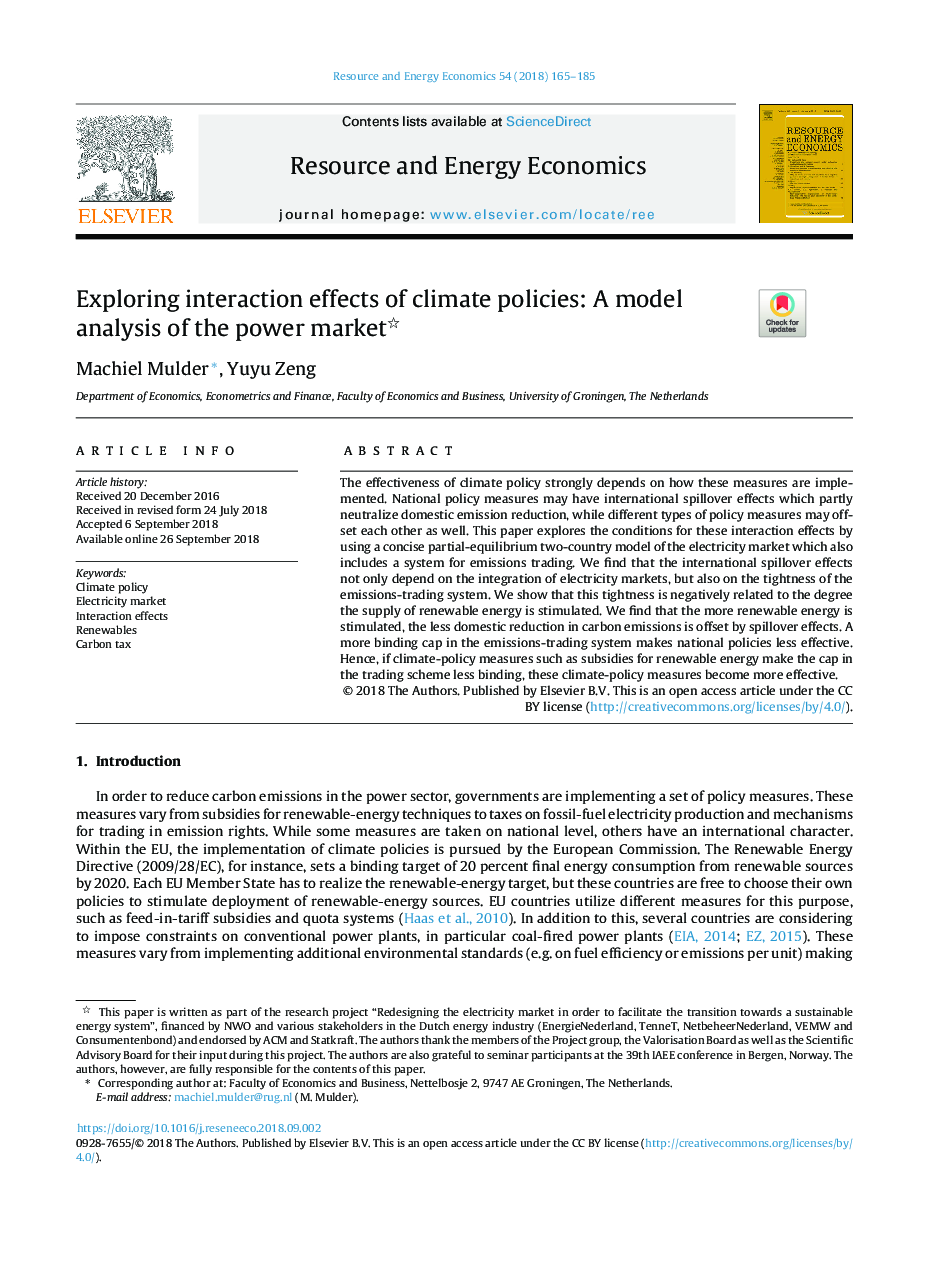| Article ID | Journal | Published Year | Pages | File Type |
|---|---|---|---|---|
| 11004947 | Resource and Energy Economics | 2018 | 21 Pages |
Abstract
The effectiveness of climate policy strongly depends on how these measures are implemented. National policy measures may have international spillover effects which partly neutralize domestic emission reduction, while different types of policy measures may offset each other as well. This paper explores the conditions for these interaction effects by using a concise partial-equilibrium two-country model of the electricity market which also includes a system for emissions trading. We find that the international spillover effects not only depend on the integration of electricity markets, but also on the tightness of the emissions-trading system. We show that this tightness is negatively related to the degree the supply of renewable energy is stimulated. We find that the more renewable energy is stimulated, the less domestic reduction in carbon emissions is offset by spillover effects. A more binding cap in the emissions-trading system makes national policies less effective. Hence, if climate-policy measures such as subsidies for renewable energy make the cap in the trading scheme less binding, these climate-policy measures become more effective.
Related Topics
Physical Sciences and Engineering
Energy
Energy (General)
Authors
Machiel Mulder, Yuyu Zeng,
